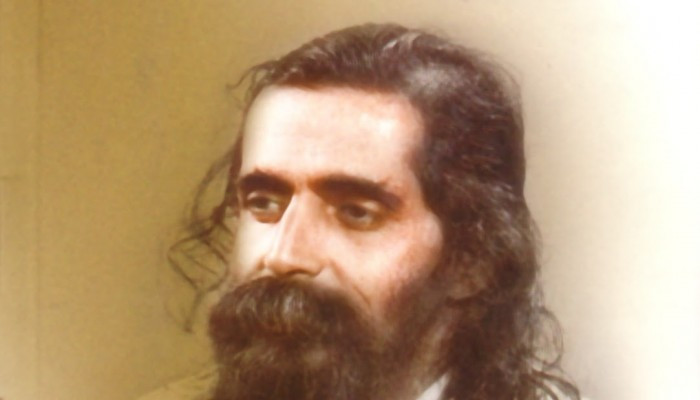Uniqueness of Hindu Rashtra
- In Society
- 12:43 AM, Oct 13, 2021
- Niraj Pareek
Note: This essay is the Fifteenth part in the series of articles based on Guruji's Bunch of Thoughts.
With increasing interest in knowing the truth about our nation’s history, the government recently invited suggestion for reforms in the history by removing the distortions made in our history. There ought to be a lot many things that are unique about this civilization, which happens to be the oldest surviving of all. The world needs to know more and the below mentioned summary of one of Guruji’s speech tries to address a few points which are far more relevant today than ever before.
The answer to the so-called problem of ‘religious minorities’ can be found only in the historically correct, rational and positive approach of Hindu Rashtra. Otherwise, the so-called minorities are bound to become more and more hardened in their separate shells of religion and turn into a dreadful source of disruption of our body-politic. As far as the national tradition of this land is concerned, it never considers that with a change in the method of worship, an individual ceases to be the son of the soil and treated as an alien. Here, in this land, there can be no objection to God being called by any name whatever. Ingrained in this soil is love and respect for all faiths and religious beliefs. He cannot be a son of the soil at all who is intolerant of other faiths.
A Lesson from Neighbours
In this connection, it would be beneficial for our Muslim friends here to take a lesson from their co-religionists in Iran, Turkey and Indonesia. Though Persia became Islamic, Persians did not change their script and take to the Arabic script. Even now a Persian will remember his forefathers, will speak of Rustom with great respect and honour. Rustom was not a Muslim. Kamal Pasha ‘the Maker of Modern Turkey’ restored the age-old national pattern of life and limited the role of Islam to personal worship of God.
The example of Indonesia is extremely revealing. Majority of Indonesians profess Islam. However, Saraswati and Ganesh are their presiding deities of their learning and knowledge. Children start their ABC in education with pictorial Ramayana. Garuda, the mount of Vishnu, adorns the name of their airways. Their constitution begins with the declaration “Dharmo Rakshati Rakshitah.”
Hindu Rashtra in Living Practice
The glaring fact inscribed on every page of our history and testified by even foreign historians and travelers, is that we never discriminated against any one on the score of religion in any sphere of our national life. The Muslims enjoyed perfect freedom and equality in the powerful Hindu empire under the Vijayanagar kings or in the Punjab under Sikh heroes. The latest Hindu power which rose under great Shivaji, too, did not discriminate against Muslims on the basis of religion.
To cite a few instances, the naval chief of Chatrapati Shivaji, Darya Sarang, was a Muslim, and two of his main lieutenants were Ibrahim Khan and Daulat Khan. Again, the 18-year old lad who accompanied Shivaji to Agra and who played a key role in the thrilling escape of Shivaji from the grip of Aurangzeb was Madari Mehtar, a Muslim. Countless instances are there of Shivaji gifting land and annual grant to masjids and dargas. Even the most fanatic Muslim chroniclers of those times have noted with admiration that Shivaji treated with utmost respect their Koran, masjids, dargas, their holy men and their women folk. And all this, when exactly the opposite was being perpetuated by the Muslims on Hindus all round.
Hindustan lived a life of unchallenged glory and power for thousands of years and spread its spiritual and cultural effulgence over vast areas of the globe – right from Mexico to Japan. Its victory had always been moral and cultural. It was a victory joyously welcomed by the local populace, a victory of selflessness, character and catholicity of spirit which evoked gratitude instead of revolt from them. Passage of centuries has not dimmed their feeling towards this land.
Real Guarantee to Minorities
As such, the so-called minorities living here have nothing to lose but everything to gain by the rejuvenation of Hindu Rashtra. It is the Hindu thought alone which, in this wide world, has recognized the immanence of one supreme power in the entire humanity and has respected and even protected and encouraged all types of cults and creeds to grow and blossom to their fulfilment. All these factors point to the fact that it is only a strong and resurgent Hindu Rashtra that can guarantee to the free and prosperous life of the so-called minorities here sharing equal opportunities as the proud children of the motherland.
Hindu Rashtra and Secularism
A dubious argument that is repeated ad nauseam is that the concept of Hindu Rashtra is against ‘secularism’. First of all, the very notion of ‘secularism’ as it originated in the west has no relevance in our country. Centuries ago, in Europe, the kings revolted and overthrew the theocratic hegemony of Pope over their kingdoms and established their own rules. Thus came about the ‘secular’ states as opposed to the ‘theocratic’ ones. Now ‘theocratic state’ has come to mean a religious state intolerant of all other faiths. There has never been any quarter for such a conflict or intolerance in our country either in the past or in the present.
Steer Clear of Confusions
Then there is the confusion of equating ‘secularism’ with ‘nationalism’. The two can never be the same. ‘Nation’ is a whole and living entity. It has ever so many functions, one of which is the statecraft. And ‘secularism’ is only one of the qualities of that statecraft. If, ‘secularism’ is to mean, as it ought to, not anti-religion but scope and opportunity for every religious persuasion to grow, and restraining of one religion from pouncing upon another, then that is undoubtedly in tune with the spirit of Hindu Rashtra. Then, the apt word for such a state would be ‘multireligious’ and not ‘secular’. In this country, the ‘state’ was never tagged on to any particular faith. Relegating men of non-Hindu faiths to second-class citizenship or levying of ‘Jezia’ on them was unknown.
Positive Content
The Hindu thought did not stop at the negative aspect of restraining one religion from infringing upon another. The wide and all-comprehensive view of life ingrained in the Hindu ruler made him to respect and encourage every single religious thought, however, few its adherents, to grow according to its own genius. This is the positive content of ‘secularism’ if at all it can be called so.
But unfortunately secularism in India has, in practice, meant anti-Hinduism for people at the helm of affairs. When the late Dr. Zakir Hussain specially went to Kerala to inaugurate a mosque, nobody objected. But when Dr. Giri went to Tirupati after his election as Rashtrapati, it was dubbed communal. The world must be laughing at us.
Image source: Ennapadam panchajanya
Disclaimer: The opinions expressed within this article are the personal opinions of the author. MyIndMakers is not responsible for the accuracy, completeness, suitability, or validity of any information on this article. All information is provided on an as-is basis. The information, facts or opinions appearing in the article do not reflect the views of MyindMakers and it does not assume any responsibility or liability for the same.







Comments